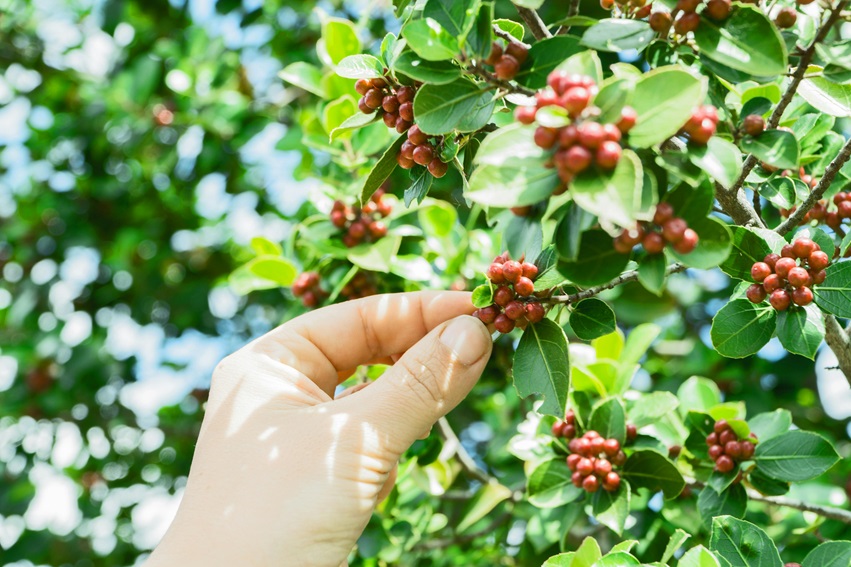World Coffee Day
Coffee isn’t just a drink; it’s a global experience, a comforting ritual that millions enjoy each day. Whether it’s starting your morning with a cup of espresso or sipping a latte with friends in a cozy café, coffee has ingrained itself into cultures worldwide.
October 1st marks the celebration of World Coffee Day, a day dedicated to the rich history, diverse types, and the health effects of coffee. As we celebrate the beverage that powers so many of us through life’s daily grind, it’s important to understand both its benefits and potential risks.
The History of Coffee

The Ethiopian Origins: Kaldi’s Discovery
The history of coffee begins in the 9th century, with the story of an Ethiopian goat herder named Kaldi. According to legend, Kaldi noticed that his goats became energetic and refused to sleep after eating berries from a certain tree. Curious, Kaldi sampled the berries himself, experiencing a similar surge in energy. He shared his discovery with monks at a local monastery, who used the berries to stay awake during long hours of prayer. This discovery marked the birth of coffee as a popular stimulant.
Coffee’s Spread Through the Arabian Peninsula
By the 15th century, coffee had made its way to the Arabian Peninsula, specifically to Yemen. Here, it was cultivated and traded, spreading through the region as a beverage enjoyed in homes and in the newly popular coffeehouses, or “qahveh khaneh.” Coffeehouses became centers for social interaction, intellectual discussions, and entertainment. In Mecca and Medina, these coffeehouses were hotbeds for exchanging ideas, and coffee became known as a “drink of the intellect.”
Coffee’s Journey to Europe
As trade routes expanded, coffee moved beyond the Middle East and into Europe in the 17th century. Venice became one of the first European ports to import coffee, where it quickly gained popularity. Initially, coffee was met with suspicion, with some calling it the “bitter invention of Satan.” However, when Pope Clement VIII sampled the drink, he gave it his approval, helping it gain widespread acceptance.
Europeans embraced coffee culture, and coffeehouses sprouted across the continent, from London to Vienna. These establishments became intellectual hubs, where politicians, artists, and businessmen met to exchange ideas. By the 18th century, coffee had become a staple in European life.
The Arrival of Coffee in the Americas
Coffee arrived in the Americas in the early 18th century through French, Dutch, and Spanish colonialists. Coffee plantations were established in the Caribbean, Central and South America, particularly in Brazil, which would eventually become the world’s largest coffee producer. Today, Brazil accounts for nearly one-third of global coffee production, making coffee one of the most traded commodities worldwide.
The Significance of World Coffee Day
World Coffee Day, celebrated annually on October 1st, was first launched by the International Coffee Organization (ICO) in 2015. The day is more than just an occasion to enjoy a cup of coffee; it is about recognizing the global impact of coffee on economies, cultures, and societies. It also serves as a reminder to support fair trade practices, sustainable farming, and ethical sourcing.
Fair Trade and Sustainability
World Coffee Day promotes awareness of the challenges coffee farmers face, especially in developing countries. Many coffee growers are underpaid for their labor, often receiving unfair prices for their crops. Fair trade initiatives aim to change this by ensuring that coffee farmers are compensated fairly, promoting better working conditions and supporting sustainable farming practices.
Environmental sustainability is another key focus of World Coffee Day. Coffee farming can have significant environmental impacts, including deforestation, water depletion, and soil erosion. Sustainable coffee production seeks to mitigate these effects through eco-friendly farming techniques, ensuring that coffee can be enjoyed by future generations without harming the planet.
Types of Coffee
One of the reasons coffee is so beloved is the sheer variety of ways it can be brewed and enjoyed. Different regions and cultures have developed unique methods of preparing coffee, resulting in a wide range of flavors, strengths, and styles. Here are some of the most popular types of coffee

Espresso
Espresso is a concentrated coffee made by forcing hot water through finely-ground coffee beans. It serves as the base for many other popular coffee drinks, including lattes and cappuccinos. Espresso is known for its strong, bold flavor and thick, creamy texture.
Americano
An Americano is made by diluting a shot of espresso with hot water. The result is a milder flavor, similar to that of drip coffee but with the rich undertones of espresso.
Latte
A latte is made by combining espresso with steamed milk, resulting in a creamy and smooth texture. It is often topped with a small amount of foam and can be flavored with syrups like vanilla or caramel.
Cappuccino
Cappuccino is similar to a latte but contains more foam and less milk. Traditionally, a cappuccino consists of equal parts espresso, steamed milk, and milk foam, giving it a distinct layered appearance.
Macchiato
A macchiato is an espresso “stained” with a small amount of steamed milk. The drink is bolder than a latte or cappuccino, with a strong coffee flavor and just a hint of creaminess.
Cold Brew
Cold brew is made by steeping coarsely ground coffee beans in cold water for an extended period (usually 12-24 hours). The result is a smooth, less acidic coffee that is served cold, often over ice
Turkish Coffee
Turkish coffee is made by simmering finely ground coffee with water and sugar (optional) in a special pot called a cezve. The coffee is poured directly into a cup, grounds and all, giving it a thick, rich flavor.
Health Benefits of Drinking Coffee
Coffee is often celebrated not just for its taste and social significance but for its potential health benefits. Research has shown that moderate coffee consumption can positively impact various aspects of health:
Boosts Mental Alertness
One of the most immediate benefits of drinking coffee is the increased mental alertness it provides. Caffeine, the active ingredient in coffee, is a stimulant that blocks adenosine receptors in the brain, reducing feelings of tiredness. This makes coffee an excellent choice for staying focused and alert, particularly during long work hours or study sessions.
Rich Source of Antioxidants
Coffee is one of the richest sources of antioxidants in the modern diet. These antioxidants, particularly polyphenols, help protect the body from oxidative stress and inflammation. Studies suggest that regular coffee consumption can reduce the risk of chronic diseases such as heart disease, type 2 diabetes, and certain cancers.
Improves Physical Performance
Caffeine stimulates the nervous system, causing an increase in adrenaline levels. This prepares the body for physical exertion, which is why athletes often consume coffee or caffeine supplements before exercise. It can enhance endurance, reduce perceived effort, and improve overall physical performance.
Lowers Risk of Neurodegenerative Diseases
Research indicates that coffee drinkers have a lower risk of developing neurodegenerative diseases such as Alzheimer’s and Parkinson’s. Caffeine has neuroprotective properties that may slow down brain aging and reduce the accumulation of harmful plaques that contribute to these diseases

May Support Heart Health
While excessive coffee consumption can raise heart rate and blood pressure in the short term, moderate coffee consumption has been linked to a reduced risk of heart disease. Studies suggest that drinking 1-3 cups of coffee per day can lower the risk of heart attack, stroke, and heart failure.
The Effects of Excess Coffee Intake
While coffee can be beneficial when consumed in moderation, excessive intake can lead to several health issues. It’s important to strike a balance between enjoying the perks of coffee and avoiding potential negative effects.
Caffeine Dependence
Regular, high consumption of caffeine can lead to dependence. When the body becomes accustomed to caffeine, reducing or stopping intake can lead to withdrawal symptoms such as headaches, fatigue, irritability, and difficulty concentrating.
Sleep Disruption
Caffeine’s stimulating effects can interfere with sleep if consumed too late in the day. Drinking coffee in the afternoon or evening can lead to trouble falling asleep, restlessness during the night, and overall poor sleep quality, which can have long-term effects on health.
Digestive Issues
For some individuals, coffee can irritate the stomach lining and cause digestive discomfort. Its acidity may contribute to acid reflux or exacerbate conditions like gastritis. People with sensitive stomachs may need to limit their coffee consumption or opt for low-acid varieties.
Increased Anxiety and Jitters
Caffeine is a stimulant, and too much of it can lead to feelings of anxiety, nervousness, or “jitters.” People with anxiety disorders or those sensitive to caffeine may find that excessive coffee consumption exacerbates these feelings, leading to increased stress or restlessness.
Increased Heart Rate and Blood Pressure
High doses of caffeine can temporarily raise heart rate and blood pressure, which may be problematic for individuals with heart conditions or hypertension. While moderate coffee consumption is generally safe, those with heart issues should monitor their intake.
Conclusion: Enjoying Coffee in Balance
World Coffee Day is a reminder of the role coffee plays in our lives—not just as a daily pick-me-up but as a cultural and social connector. Coffee has a rich history and continues to evolve in its significance, from being a part of daily rituals to serving as a vehicle for social change, especially in the areas of fair trade and sustainability.
As with many things in life, moderation is key. Coffee offers several health benefits when consumed wisely, but excessive intake can lead to unwanted side effects. So, as you enjoy your next cup of coffee, remember to savor it responsibly, celebrating both its history and its future.
Disclaimer:
The information provided in this blog post is for educational and informational purposes only. It is not intended as medical advice or to replace professional guidance. While moderate coffee consumption is generally safe for most individuals, excessive intake can have health consequences. If you have specific health concerns or conditions, it is recommended to consult a healthcare professional before making significant changes to your diet or coffee consumption habits.


Recent Comments